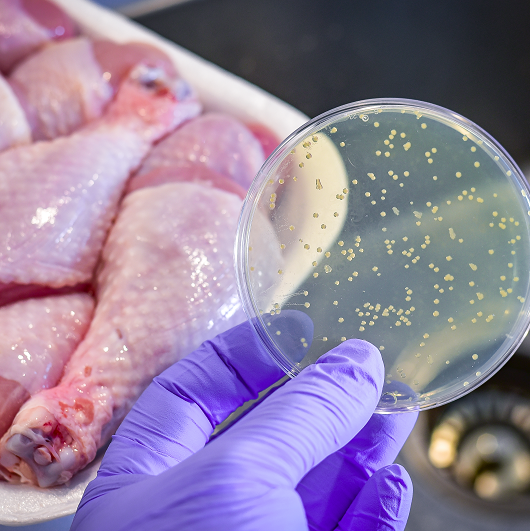How to Prepare for an Emergency

September 10, 2020
September is National Preparedness Month and being prepared for an emergency has become top of mind for many. Self and family preparedness are always important and there are many strategies we can take to make sure that our families are safe and ready for any emergency or disaster.
It is important to remember that as we think about a family emergency preparedness plan this year, we take COVID-19 into account. We may not only need to protect ourselves from the emergency, but also from becoming infected or infecting others as well.
Questions to Ask Before Creating an Emergency Preparedness Plan
A good emergency preparedness plan during COVID-19 should help you answer these questions:
- How will I stay up-to-date on emergency alerts and warnings?
- What is my shelter plan should I need to evacuate from my home?
- What are my evacuation routes?
- What is my family communications plan?
- Do I need to update items in my emergency preparedness kit?
- How will I stay informed on the latest guidelines for protecting me and my family from COVID-19?
Once you’ve answered these questions and have your plan, write it down along with important phone numbers and addresses. Make sure all members of your household know the plan.
What Should I Include in My Emergency Preparedness Kit?
A question many households struggle with is, what should be in my emergency preparedness kit? When designing your kit, take the specific needs of your household into account, including:
- Ages of household members
- Household members with chronic illnesses or special needs
- Household members with special dietary needs
- Any pets that may be in your household
Except for prescription medications, your emergency preparedness kit should be designed to last you for 3 full days. Here are the important items that should be in any emergency preparedness kit:
- Non-Perishable Food: Don’t forget the manual can opener
- Water: A good rule of thumb is one gallon of water per person per day
- Prescription Medications: 2-week supply minimum
- Battery-Powered Radio & Flashlights
- Extra Batteries
- Blankets or Sleeping Bags: 1 per member of the family
- First Aid Kit
- Sanitation and Hygiene Items
- Waterproof Matches
- For Infants: Formula, Diapers, Bottles and Pacifiers
- Pet Supplies
- Photocopies of Important Documents: personal identification, credit cards, etc.
- Cash
- Fire Extinguisher: Multipurpose for A-B-C fires
To help protect you and your family during COVID-19 add a few other essential items as well:
- Hand Sanitizer
- Face Coverings
- Disinfecting Wipes
- Over-The-Counter Fever Reducers and Cough Medicine
When preparing your kit, remember to practice good social distancing. If you’re picking up supplies in stores stay at least 6 feet apart from other customers or if possible, consider ordering online.
What to Do In the Event of an Evacuation
If you live in an area prone to evacuations, prepare a smaller kit or “Go-Kit” of the above items that you may need if displaced to a shelter. If you must stay in a shelter, make sure you know the safety precautions they have in place before you need to go.
Also remember to bring enough hand sanitizer, face coverings and disinfecting wipes for all members of your household. Ensure you practice good social distancing and refrain from touching high-touch surfaces, such as counters and handrails.
Lastly, if you feel sick when you arrive or during your stay, inform the staff immediately.
Having an emergency preparedness plan will go a long way to making sure your family is safe during an emergency. With just a few simple steps, items and knowledge, you can keep your family safe, even during the COVID-19 pandemic.
Next Steps & Resources:
- Clinical Contributor: Scott Skrivanek, Life Safety and Emergency Management Coordinator, Hackensack Meridian Raritan Bay Medical Center
- Ready.gov
- Ready NJ
- CDC
The material provided through HealthU is intended to be used as general information only and should not replace the advice of your physician. Always consult your physician for individual care.
Find a doctor near me

5 Questions to Ask Your Physician at an Annual Physical Exam
Getting an annual physical exam is an important step in staying healthy. It’s an opportunity to touch base with your primary care physician while you are healthy so you can stay that way.

How to Prepare for A Winter Storm
Prepare for winter storms. Dr. Faugno offers safety tips and preparedness advice to protect yourself and loved ones. Get ready now! Call 800-822-8905.
Find a doctor near me

Food Recalls: Causes and Dangers
Learn about food recalls: causes, dangers, and how to protect your family from foodborne illness. Expert advice from Dr. Kopolovich. Get help now.

Spotting Infection: How to Tell if a Cut is Infected
It’s important to know the difference between a cut that just needs time to heal and one that has developed an infection. Here are the signs of infection:

What Does Poison Ivy Look Like & What to Do If I Touch it?
Know how to spot a poison ivy plant and the steps to take if your skin has come in contact with the pesky plant.

7 Ways To Avoid Food Poisoning, and What to Do If You Get Sick
Whether you’re preparing an elaborate meal for your family or quickly cobbling something together on a weeknight, the last thing that you want to do is make anyone in your household sick.
